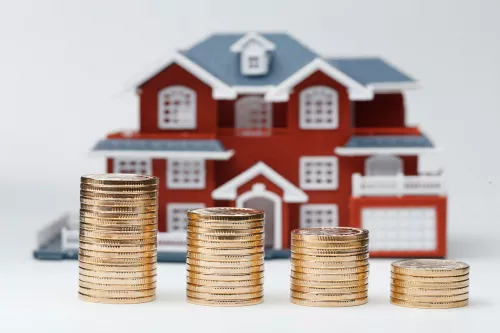Thinking about investing in rental property? It is an appealing option, since it is seen as a profitable investment. But don’t think that it’s all easy peasy, owning an income property comes with certain responsibilities and expenses. Understanding and managing these expenses is an important component of operating a rental property successfully.
Here, we’ll explore the world of rental property responsibilities and expenses, and cover often asked topics like "What is considered an expense for a rental property?" and "How do you calculate property expenses?". We'll also go over the typical costs associated with real estate investments.
What is considered an expense for a rental property?
When understanding rental property expenses, it's critical to distinguish between deductible and capital expenditures. Deductible expenses are costs that can be deducted from rental revenue to determine taxable income. Capital expenditures, on the other hand, are investments in your property that increase its worth over time.
Some common deductible expenses for rental properties:
Mortgage Interest
The interest you pay down in equal installments over the loan's term on your mortgage loan to the lender is tax-deductible. Loan payments typically comprise P&I (principal and interest) as well as a pro-rata payment for property taxes and insurance. These are significant expenses for most property owners.
Property Taxes
The property taxes you pay to local authorities are also deductible. Property tax is one of the costs involved with a rental property investment. This fee is levied by the county in which the property is located and is normally dependent on the jurisdiction of the property. When you need to estimate your property tax expenses, call the county assessor to get the exact amount for the current property taxes.
Insurance
Insurance premiums for your rental property, such as homeowner's insurance and landlord insurance, are included in your monthly mortgage payment. When they are not, you have to set apart enough money to cover monthly insurance costs. One way or another, this expense should be seriously taken into consideration for long-term rental properties.
Maintenance and Repairs
Expenses related to maintaining and repairing the property, like fixing a leaky roof or a faulty HVAC system, are deductible. Some experts recommend saving a budget of anywhere between 10 to 15 percent of the annual property rent, considering that maintenance cost can’t be really accurately appointed.
Some overall maintenance costs include landscaping, pool cleaning and chemicals, pest control and treatment, etc.
Utilities
If you cover some or all of the utilities for your tenants, such as water, gas, electricity, sewer, and garbage service, you need to add these costs to the deductible expenses list. Your tenants probably will cover some utilities costs, but those ones that are not included on the contract will be your responsibility. This expense can range from $30 to $300 per month, depending on the location of the property and usage of utilities.
Property Management Fees
If you pay a fee to hire a property management company, be it individual property managers, on-site manager, or pay condominium association fees, these expenses are deductible as well. A professional property management company can help you save time and add value to your property. Their duties include establishing rates for rentals, collecting rent, assigning maintenance, taking care of marketing/advertising, handling interactions, and locating prospective tenants.
Advertising and Marketing
Investing in the advertising of your rental property, like hiring a professional photographer or running ads, are considered deductible costs.
Depreciation
While not an immediate expense, depreciation allows you to deduct a portion of your property's value each year. The Internal Revenue Service (IRS) permits residential rental property investors to deduct 3.636% of the price of the property per year for a period of 27.5 years, excluding the value of the land or lot.
What are the common expenses in real estate?
In addition to the deductible expenses mentioned above, real estate investors often encounter several other common expenses:
Vacancy Costs
When your property is vacant, you lose rental income. It's essential to budget for potential vacancies, since they are almost impossible to avoid. You can appeal to some strategies such as get better at lease renewals, stay on top of compliance, or use a rental property calculator to determine what portion of the year a rental property in a certain location does not have tenants.
Legal and Professional Fees
Investors will have expenses related to legal matters, like evictions or hiring an attorney, as well as professional services such as accounting or real estate agent commissions ( If you don't manage the property yourself ).
HOA Fees
If your property is part of a homeowners' association, you'll have to pay regular dues (quarterly or annually), and thus that becomes a deductible expense. Check to see if the neighborhood has a HOA before purchasing an investment property. This fee is common in condo buildings and its value varies.
Capital Improvements
While not immediately deductible, significant improvements like kitchen renovation or a new roof can be capitalized and depreciated over time. This expense can vary as well and and depends on the rental property’s condition.
Travel Expenses
If you need to travel to manage your rental property, these expenses can add up.
How to calculate property expenses?

Calculating your rental property expenses accurately is crucial for budgeting and maximizing your profits. You don’t want to underestimate the cost of owning a rental property, because when the expenses are higher than anticipated, the result is lower cash flow and returns.
Collect expenses documents
Gather all receipts, invoices, and expense records related to your rental property. Call utility companies and ask for the average utility bills over the past few months. By doing this you might be able to detect any possible inefficiency at your property.
Categorize Expenses
Organize your expenses into categories, such as maintenance, utilities, insurance, and property management. Once you are organized, it will be easy to identify and calculate the final cost.
Add Up Deductible Expenses
Total all deductible expenses you have, including those we quoted above and any other that we might not have mentioned.
Include Non-Deductible Expenses
Factor in non-deductible expenses like capital improvements, which will affect your overall financial picture but aren't immediately deductible.
Speak with the property managers in your area
Property managers are the best source of accurate information in your local market because they will be familiar with rental costs in your area. Call a few different property managers. Inform them that you're interested in hiring a manager, and while you're at it, ask them what the total expenses on the property would be.
Account for Vacancies
If your property experiences vacancies, estimate the potential income loss and include it in your calculations.
Calculate Total Expenses
Sum up all expenses to find your total property expenses for a given period (e.g., a month or a year).
Subtract from Rental Income
Subtract your total expenses from the rental income you receive to determine your taxable income.
Rental property expenses will differ from one property to the next and from one area to the next. The majority of these rental property expenses are tax-deductible, which appeals to investors.
Even if it costs you money up front, these expenses will ultimately benefit you during tax season. Investors who want to build long-term wealth, including passive income for retirement, should consider investing in rental properties.
People also ask
What does a Profit & Loss Statement mean in real estate?
A profit and loss statement, commonly referred to as a P&L, is a financial document which enables investors to monitor the finances and performance of rental homes. The report includes information on property income, expenses, profits, and losses. A profit and loss statement can help investors identify expense categories or areas where they can cut costs and increase profit.
How to keep track of rental property expenses?
You can try to keep a record of all the money that goes out by making a spreadsheet using Microsoft Excel, Numbers, Google Sheets, OpenOffice or generic accounting software like Quicken and QuickBooks.

 Marcio Vasconcelos
Marcio Vasconcelos





